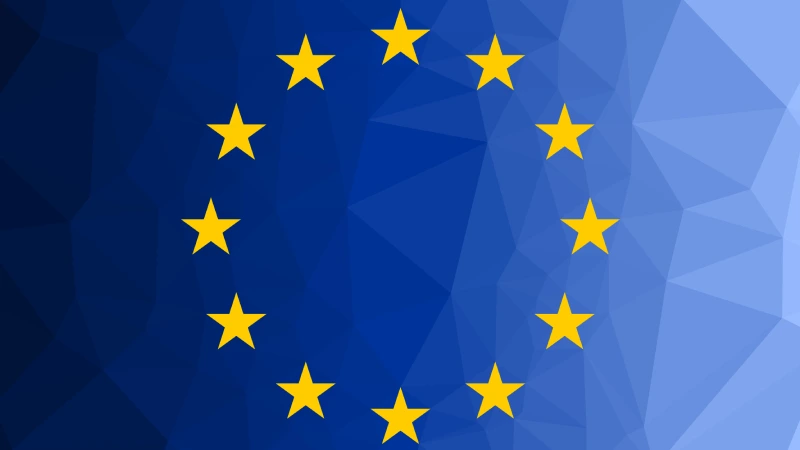Overview
In 2024, more than 35 billion e-invoices were processed across Europe, marking a significant leap in the digital transformation of business transactions. This surge reflects the growing demand for more efficient, accurate, and transparent invoicing processes. At the heart of this shift is Universal Business Language (UBL), an open, XML-based format that standardizes the exchange of business documents like invoices, purchase orders, and payment instructions.
As governments and businesses alike embrace automation, UBL plays a key role in reshaping accounting practices across Europe, streamlining workflows, and driving cost savings.
In this blog, we’ll dive into why UBL is poised to become the future of accounting automation and explore its growing adoption across Europe.
What Is UBL?
1. Standardization Across Borders
One of the main challenges businesses face today is the lack of standardized processes across different countries. UBL offers a unified, globally accepted format that simplifies cross-border transactions. For multinational businesses or companies working across different regions, it reduces complexities by providing a common structure for electronic documents, ensuring consistency and compliance with local regulations.
In Europe, UBL’s adoption has been particularly widespread. The European Union’s e-invoicing Directive (2014/55/EU) has paved the way for the mandatory use of UBL in cross-border public procurement.
2. Cost Reduction and Efficiency Gains
The financial and operational advantages of adopting UBL are profound. According to a 2023 Deloitte report, businesses that implemented UBL for invoicing saw a 55% reduction in processing time per invoice. By automating tasks like data entry and document validation, UBL frees up valuable resources, enabling companies to focus on higher-value activities such as financial analysis and strategic planning. This streamlined approach not only lowers operational costs but also accelerates payment cycles, leading to improved cash flow management and overall financial efficiency.
3. Compliance and Transparency
As regulations surrounding financial reporting and invoicing become more stringent, UBL ensures compliance with local and international laws. In Europe, several countries have mandated e-invoicing for both B2G (business-to-government) and B2B (business-to-business) transactions, with UBL serving as the standard format.
In the Benelux region, Belgium, the Netherlands, and Luxembourg have been early adopters of UBL. The Netherlands has been at the forefront of e-invoicing, mandating UBL for B2G transactions since 2017. Belgium followed suit with its own e-invoicing mandates, and Luxembourg is quickly moving towards full adoption. Governments and businesses in these countries have reported improved efficiency, transparency, and cost savings through using UBL-compliant e-invoicing platforms.
UBL’s Impact in Europe
Europe remains at the forefront of UBL adoption, particularly in e-invoicing. According to a 2024 report by the European Commission, the number of e-invoices processed across the EU has increased by 17% compared to 2023. The Benelux region has experienced even more remarkable growth, with annual adoption rates for e-invoicing rising by 30%.
In the Netherlands, where e-invoicing using UBL has been mandatory for government suppliers since 2017, businesses have reported significant improvements in efficiency. A survey by the Dutch Ministry of Economic Affairs in late 2023 revealed that companies using UBL e-invoicing experienced a 65% reduction in invoice processing time and a 40% decrease in invoice-related errors.
In Belgium, where e-invoicing for public procurement has been mandatory since 2019, the government reported savings of over €250 million annually with UBL for B2G and B2B invoicing. Belgian businesses have also benefited, with a 55% reduction in disputes related to invoicing discrepancies, according to a 2023 report by Agoria, Belgium’s technology federation.
Luxembourg is rapidly catching up, with an anticipated full rollout of UBL for both B2G and B2B transactions by 2025. Early adopters in the country have already reported a 50% decrease in processing costs and faster payment cycles, positioning Luxembourg as a leader in digital invoicing.

Conclusion
With UBL gaining momentum across Europe, SmartUBL is helping businesses harness the full potential of this transformative technology. It offers a fully automated e-invoicing solution that converts invoices into UBL format, allowing businesses to seamlessly integrate with their accounting systems.
SmartUBL’s platform offers real-time invoice tracking, automatic validation, and ensures compliance with regional requirements like the EU’s e-invoicing mandates. This results in faster processing times, fewer errors, and improved cash flow management. Businesses using SmartUBL have reported up to an 80% reduction in invoice processing costs, making it an essential tool for companies looking to stay ahead in the digital age.
With SmartUBL businesses can fully leverage the benefits of UBL, streamline their financial operations, and ensure compliance with the ever-evolving regulatory landscape.



